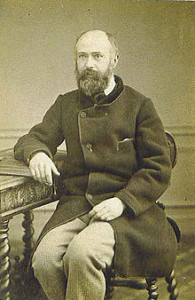How many times have we heard the secular bastion of good parenting encapsulated in the expression: “I just want them to be happy”?
And, I guess, there’s nothing inherently wrong in this. I mean, as parents we do love to see our children well and enjoying themselves. And happier children make us feel as though, as parents, we’re doing something right.
It’s just that being happy, is not ambitious enough.
Parenting is not about ambition, I know. There’s no career trajectory, employee benefits or, let’s face it, wages, but if we’re parenting right we want more than for our kids to be happy.
Why?
Because, as a culture we use happiness as a yardstick of success, and as a way to paper over less than ideal behaviour.
There have been so many times that I’ve heard parents express their disappointment that their children are cohabiting outside of marriage, divorced, and so on, but justified their children’s choices by saying that “at least they’re happy.”
Now, I know that everyone is free to make their own choices, good or bad, and I don’t suggest I make the right choices all the time, or even 50% of the time if I’m honest, but there’s one thing you’ll never catch me saying: “I just want them to be happy.”
Because in doing so, I’m nullifying my role as their first educator in the faith. And I’m too much of an overachieving perfectionist to lie down and take defeat. If I know that my children are doing the wrong thing, I’m going to tell them and I’m going to pray for them. I’m going to guide them and help them along the narrow way.
Besides, if there’s one thing I want my children to be, it’s holy. And holiness, in this life certainly doesn’t go hand in hand with happiness. Take Saint Louis Martin, for example, who suffered immensely during his final years physically and mentally, and whose contemporaries blamed his austere and ‘holier than thou’ approach to life as having caused his bodily suffering.
Was he happy? Not in a worldly sense, though he found many consolations in his daughters and their vocations. But was he holy? You bet he was and now he’s been canonised by the Church.
So, no, I’m not going to settle for my children’s worldly happiness. Or mine for that matter. If I really want to be holy, I’ve got to accept the crosses that come my way and I’ll be trying to help my children come to this realisation too.
Yes, this means that sometimes I’m going to have to be strict. Only this week my husband and I have sat down with our eldest, who made his First Communion earlier this year, and told him that his behaviour in Mass is far from acceptable. I could make excuses for his age, or his autistic spectrum features, but he’s already attained the age of reason and if he receives Our Lord unprepared it’s damaging for his soul, and he needs to be reminded of this.
Was he happy to have this conversation with us? Was he happy to hear his father suggest that he might not be able to receive Our Lord in the Eucharist if he didn’t show more suitable behaviour, and more reverence, in Mass? Of course he wasn’t, but will he emerge more faithful and reverent as a result? You bet he will.
Am I prepared to have this conversation again when he’s a teenager or an adult if he needs it? Or with another of our children if they too need to be reminded of the importance of receiving the Eucharist worthily? Yes.
Because his holiness is more important than his happiness. And yes, I want him to be happy, but not in this life because this life is fleeting.
And eternity is a long time to be unhappy.
Originally posted 2016-10-11 15:00:06.


